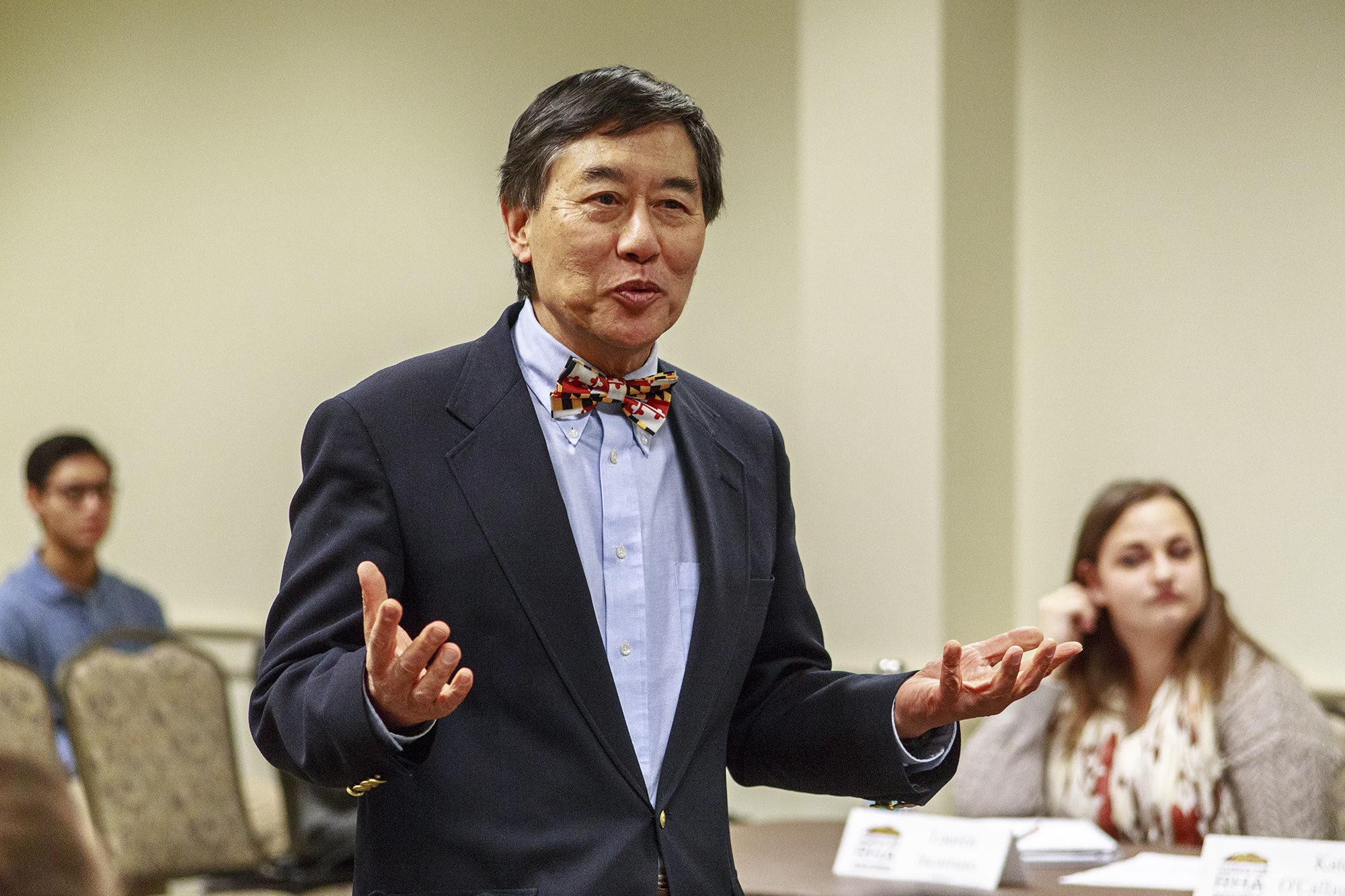University President Wallace Loh denounced President-elect Donald Trump’s rhetoric and called last week’s election a “struggle for the soul of America” at an RHA Senate meeting Tuesday night.
“‘Make America great again’ — when I hear those words what I really hear is ‘make America white and Christian again,'” he said of Trump’s campaign slogan.
With more than one protest materializing on the campus in wake of the election, Loh called on University of Maryland students Tuesday to seek unity and consider advocating change by other means.
“What I don’t understand is all these protests against the results of this election,” he said. “We live in a democracy. That’s what the voters chose. If we’re going to protest, we’ve got to protest the policies, the actions of the next president.”
Students should remain optimistic and devoted to unity, Loh said, echoing the message he conveyed in his Nov. 11 email to the university community.
“You’ve got to have hope, especially if you’re committed to social change,” he said.
“Secondly, we have to bring people together.”
RHA administrative officer and sophomore Emily Franzone, a psychology and management major, echoed the sentiment that students have an obligation to give back to their community.
“As President Loh discussed, it is our duty to give back to the community that has given so much to us,” she wrote in an email Tuesday night.
Loh also tried to shed light on the election’s outcome. While calling Hillary Clinton a “good friend” who recruited him for law school, Loh admitted that she struggled to connect with voters.
“[Clinton] is this cerebral person who understands policy backward and forward, but leadership is not about policy expertise,” Loh said. “Leadership is about connecting with your stakeholders. I hate to say this, but Donald Trump, our president-elect, connects with people.”
In response to the election, this university must provide opportunity and education for those of all socioeconomic backgrounds in order to bridge the divisions afflicting the country, Loh said.
“What we have is a whole group of folks in this country, working class folks, who for the past 30 years, their wages have been stagnant, their jobs are being exported abroad, they have very little hope,” Loh said. “And what has higher education done for them? I’m not so sure.”
Inclusive dialogue on the campus is key, he said.
“I think people of different ethnic, racial backgrounds need to sit down and have hard, uncomfortable conversations,” Loh said, noting his plans to take 100 students and 20 faculty and staff members to the National Museum of African American History and Culture on Wednesday.
Loh initially took a group of students to the museum last month, and called the experience “emotionally overwhelming.”
“How many presidents go around taking college students on a field trip?” he said. “This is no ordinary field trip. We need to have more of these conversations on campus.”
Loh also took time during the meeting to voice his disagreement with Trump on climate change policy.
“I think President-elect Trump is totally wrong if he thinks that the way to go is to gut the [Paris] climate change accord,” said Loh, who has pledged his support for increased funding for alternate energy sources. “You guys are the first generation in human history who’s going to feel the full effects of global climate change, and you’re the last generation who can do something about it.”
RHA President Steve Chen said he would focus on Loh’s message to student groups surrounding activism.
“We should identify the areas where we as campus groups feel passionate about and work within the democratic process to create change, and I think that’s the message [from Loh] that I will implement,” the biology and individual studies major said.



